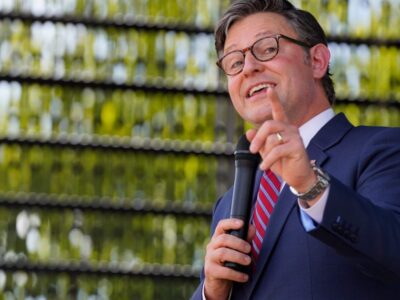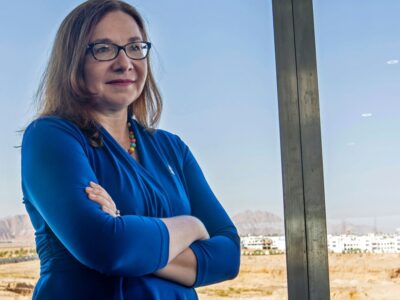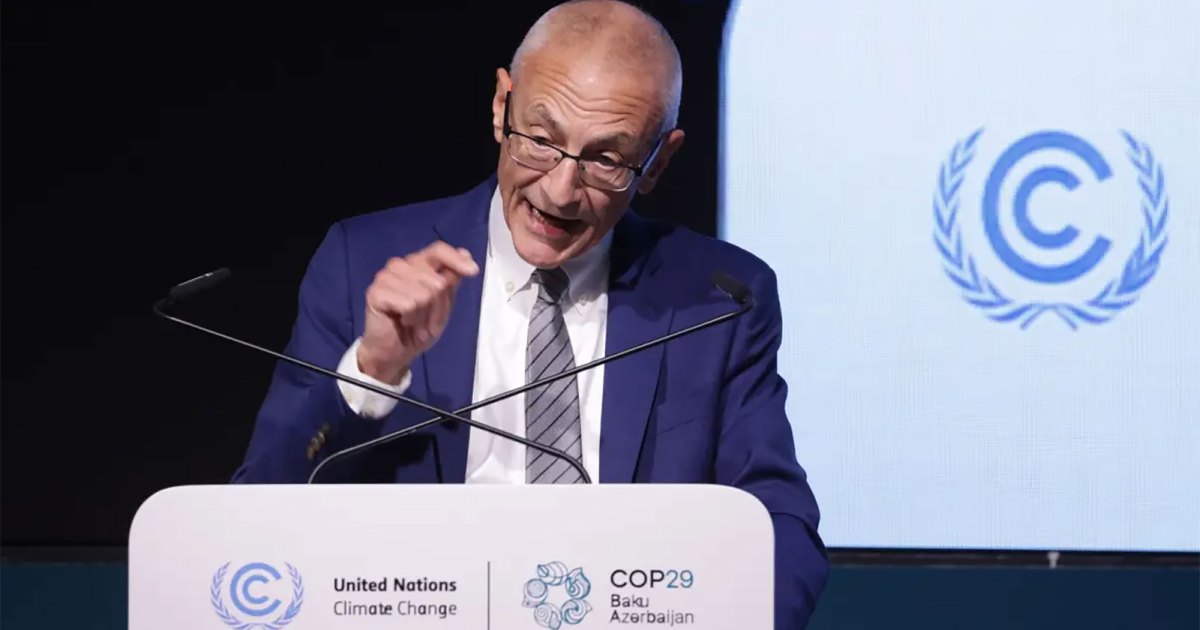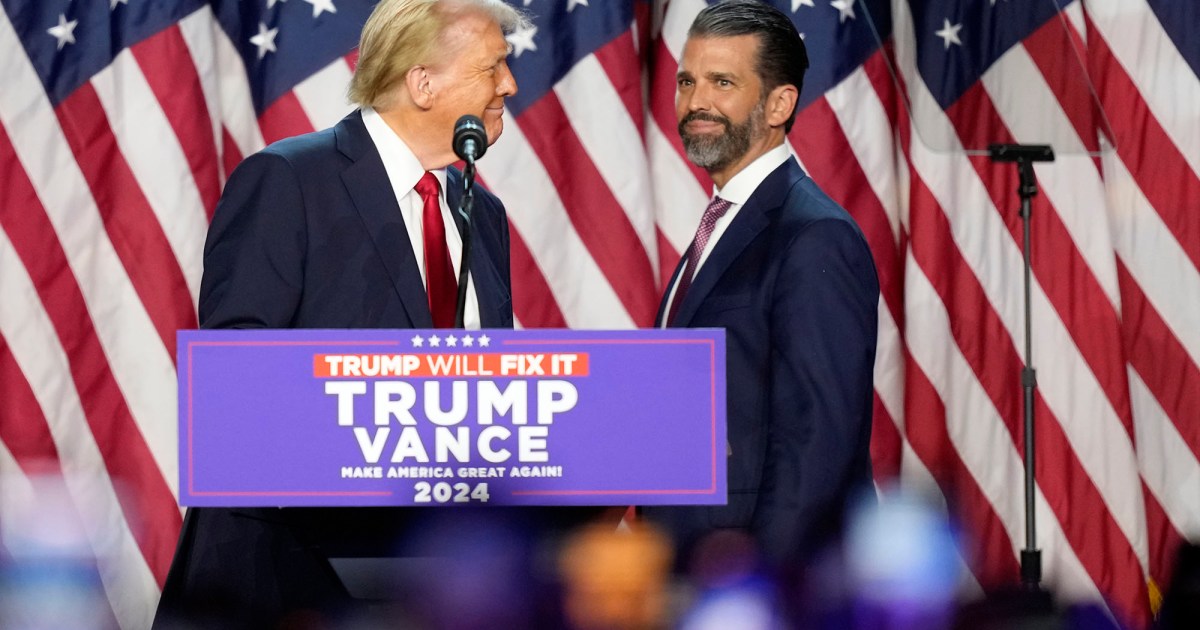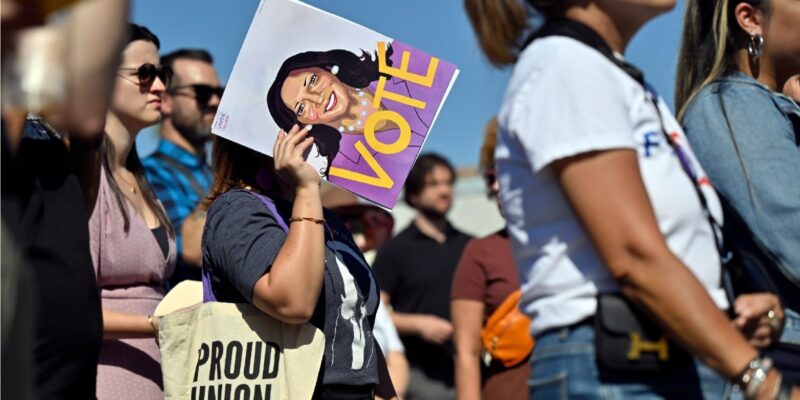
This story was originally published by the Guardian and is reproduced here as part of the Climate Desk collaboration.
By now, the canvassers at Make the Road Nevada know how to prepare themselves for the record-breaking heat.
Members of the progressive group—which focuses on mobilizing Black and Latino voters—layer on white, UPF-protective shirts, and sweat-wicking performance wear. They fill their 50-quart coolers with ice-cold water. And they pack lots and lots of chips—barbecue Lays and Cheetos and Doritos—for the road. The salt helps stave off dehydration.
“Hey, at least it hasn’t broken 100 yet,” said Marco Rangel, an electoral campaign manager for the group, as the canvassers made their way outside, into the boiling autumn sun. By 10 am, the temperature had already ticked past 90 degrees Fahrenheit, but a mid-October heatwave was expected to bring highs of 105. “Be careful out there,” Rangel warned.
Residents of this desert city are used to searing summers, but this year Las Vegas endured a string of record-breaking heatwaves. This June was the city’s hottest ever, and in July it endured a record seven days when temperatures registered at 115 F or higher. It also marked an all-time temperature record of 120.
Even during the final few weeks before Election Day, as campaigns across the key swing state kicked into high gear, the weather did not let up. Extreme heat across the US south-west broke hundreds of records this fall. In mid-October, temperatures in Vegas ticked up past 104 fahrenheit.
Political strategists believe that face-to-face conversations are crucial in a state that could decide the outcome of the presidential election, as well as which party controls the Senate. The state’s Clark and Washoe counties—which encompass the cities of Las Vegas and Reno, respectively—are especially key. These regions encompass 90 percent of the state’s population, and this year they have seen a rash of extreme heat that has threatened to derail voter outreach.
“I could be inside, in the AC at my job, but I want to talk to people and share my story…I want to make sure people understand why they need to vote.”
“This is the hottest year I’ve ever experienced here,” said Patience Denise Marble, 40, a lead canvasser for Make the Road. The heat can slow outreach, she said—because canvassers have to move more slowly and take more breaks. At the door, voters also tend to rush the conversation. “They tend to be more anxious to finish the conversation and get back inside,” she said. “But I also get a lot of people thanking us for being out there in the heat. And they’ll offer us cold drinks or ice.”
The brutal conditions were especially pronounced in Vegas’s east side, north side and downtown—predominantly working-class Latino and Black areas that campaigns across the political spectrum believe could swing the election. A heat-mapping project of southern Nevada found that these neighborhoods were up to 11 degrees hotter than other parts of the region, due to a lack of natural landscaping and the ubiquity of concrete and asphalt.
Make the Road halts on-person canvassing when the temperatures tip over 110 degrees, or during excessive heat warnings, and transitions to phone banking instead. Otherwise, to shield against the sun’s harsh rays, the organization’s team wears white clothing branded with the Make the Road logo to help shield them from the harsh rays in shadeless neighbourhoods. And team leaders mandate frequent breaks—every 40 minutes or so, the team piles into air-conditioned vehicles to cool off, or drive over to climate-controlled coffee shops.
This summer, the conservative Libre Initiative, meanwhile, bought cooling neck wraps for its canvassers to wear and shifted schedules to avoid the hottest parts of the day. And canvassers for the Culinary Workers Union Local 226—which represents 60,000 hospitality workers in the city and each election launches one the biggest voter mobilization efforts in the region—said they usually opted to drive in their air-conditioned vehicles, rather than walk, from one street to the next in order to avoid heat exhaustion.
“Yes, it’s hot, but it’s important,” said Urbin Gonzalez, who had taken time off from his full-time job in housekeeping on the Las Vegas Strip to canvass with the Culinary Union. “Because I could be inside, in the AC at my job” he said. “But I want to talk to people, and share my story, and listen to their stories. I want to make sure people understand why they need to vote.”
In Reno, City Council member Miguel Martinez said campaign season has not only collided with extreme heat, but also wildfire. In September, as Martinez was gearing up canvassing efforts for his own campaign as well as that of Harris and Walz, the Davis fire turned skies over the city orange. “There were big pieces of ash falling in our driveway,” Martinez said. “Big black chunks.”
His team ceased campaigning that week, he said—both because the wildfire smoke made it difficult to breathe outdoors and because Martinez wanted to avoid distracting residents from the messaging and updates coming from local fire crews.
Once canvassing efforts resumed, Martinez said canvassers contended with an unseasonably warm autumn. He and his wife, who often go canvassing together, would pack their cars with frozen water bottles, and drink them as they melted to stay hydrated. “And we would try to walk quickly from, you know, shade to shade,” he said. During especially hot days, those who answered the door would hand him cold beverages or invite him inside to rest.
Still, Martinez said, that voters have surprisingly seldom brought up the environment or climate change as a big concern when he goes door-knocking. “I didn’t hear about it as much as I hear about the economy or the cost of living, or safety concerns,” he said. “A lot of times I guess people just feel they have to tough it out – that is how it is, and we have to deal with it.”


